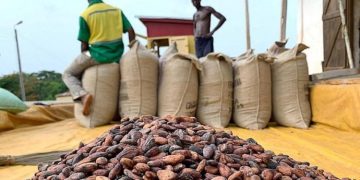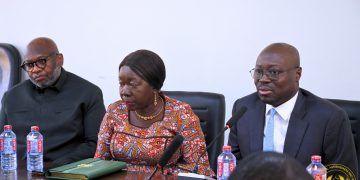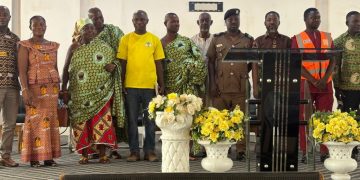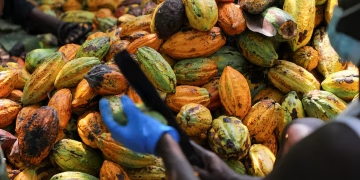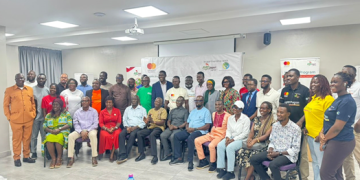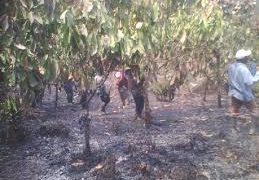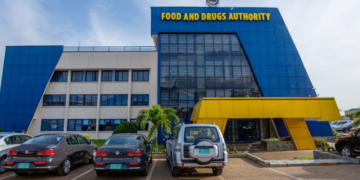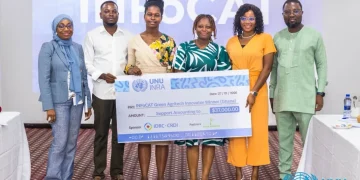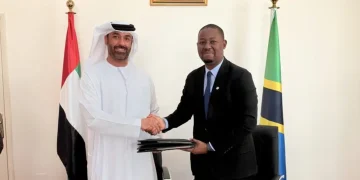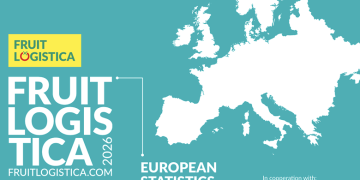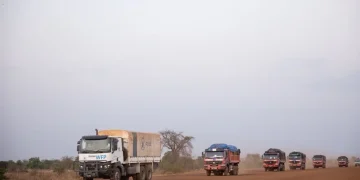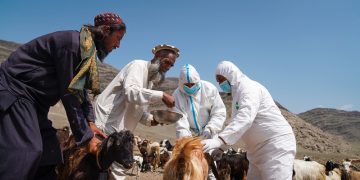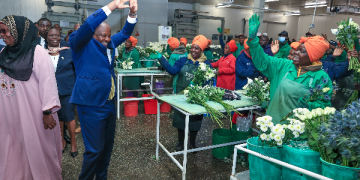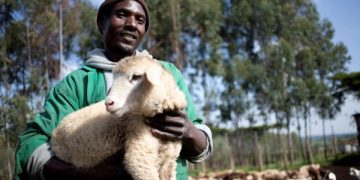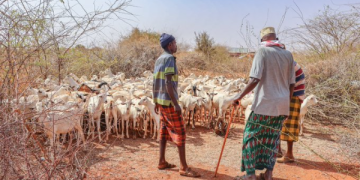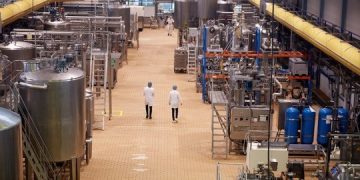Farmers in the Gushegu Municipality of the Northern Region have commended the Alliance of Bioversity International and CIAT for introducing climate-resilient farming technologies that are transforming agriculture and improving livelihoods in the area.
Mr Iddrisu Ibrahim, a Lead Farmer under the Sustainable Farming Programme at Limo in the Municipality, said the initiative had significantly improved crop yields and household resilience against climate-related challenges such as droughts and floods.
He said “Hitherto, we used to plant our crops haphazardly without applying any agronomic practices, which often resulted in poor yields. But since these climate-smart practices were introduced to us three years ago, we have seen positive changes in our farming business.”
Mr Ibrahim particularly highlighted the fertilizer application-at-planting method introduced under the programme, saying it had strengthened crop resilience against drought and storms leading to bumper harvests.
He said “For the past three years, my household has seen a drastic improvement. We no longer struggle for basic needs like food, and I’m able to take care of my three children, wife, and mother.”
He gave the testimony during a field demonstration day organized by the Alliance of Bioversity International and CIAT, which brought together beneficiaries of the project including farmers, agricultural scientists, and extension officers to assess various agronomic practices introduced in the area.
Dr Patricia Amankwah Yeboah, an agricultural scientist with the Alliance of Bioversity International and CIAT, said the field demonstration formed part of broader efforts to enhance the resilience of smallholder farmers through improved agricultural technologies.
She explained that the project was being implemented across the Northern, Upper West, and Savannah Regions where farmers were being supported with technologies to improve productivity and adapt to changing climatic conditions.
Dr Yeboah mentioned some of the key technologies introduced including early-maturing and high-yielding crop varieties, fertilizer application at planting, use of an agro-advisory tool known as the cropping calendar for climate information dissemination, and intercropping systems.
She said “The cropping calendar, for instance, helps farmers know the right time to apply fertilizer and avoid disruption. It’s also linked to pest monitoring tools. So, when there’s a pest outbreak in a particular area, farmers can be alerted immediately to take preventive action.”
She noted that the project also included training-of-trainers workshops to build local capacity and sustain the adoption of the technologies.
Dr Yeboah commended the farmers for their commitment and encouraged them to continue implementing the improved practices to boost food security.
Mr Kingsley Ofori, Agriculture Extension Officer for the Zinido Operational Area in the Gushegu Municipality, also praised the Alliance of Bioversity International and CIAT for complementing government’s efforts toward promoting sustainable agriculture.
He said the interventions were helping farmers better understand climate change and adopt strategies to mitigate its effects.
He expressed appreciation to the implementing partners for their continuous support in advancing sustainable farming practices in the Municipality.
Other farmers, who spoke to the Ghana News Agency during the demonstration, called for sustainability of the project to improve their livelihoods and address malnutrition, hunger and deprivation in the area.
SOURCE : GNA














